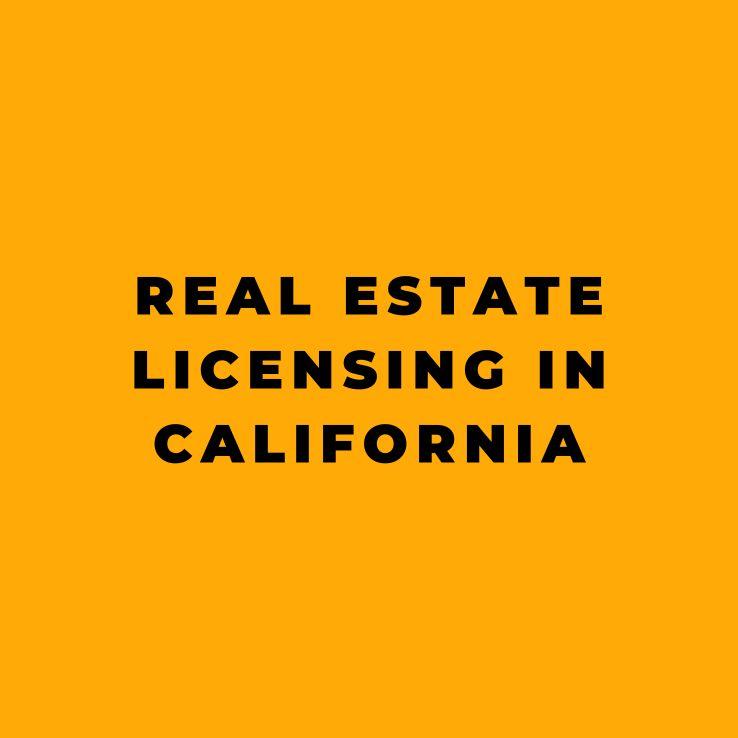Real estate is a booming industry in California, known for its high-value properties and a thriving market. With over 38 million residents, the demand for real estate agents is high, making it an attractive career option for many. However, before embarking on a successful career in real estate in California, it is essential to understand the process of obtaining a real estate license. This comprehensive guide will provide an in-depth overview of the steps required to become a licensed real estate agent in California, along with key insights, tips, and practical advice to help you navigate the process effectively.
Getting Your License
The first step in obtaining a real estate license in California is to ensure that you meet the basic requirements set by the California Department of Real Estate (CDRE). This includes being at least 18 years old and eligible to work within the U.S. The CDRE has established these requirements to maintain the integrity of the real estate industry in California. It is important to note that non-U.S. citizens can still obtain a real estate license in California, provided they meet the eligibility criteria.
Once you meet the requirements, the next step is to enroll in an accredited California real estate school. The Department of Real Estate has approved specific pre-licensing courses that all aspiring real estate agents must complete. These courses include Real Estate Practice, Real Estate Principles, and one elective course. Upon successful completion of each course, you will receive a certificate of completion, which serves as proof of your enrollment and achievement.
What You Can Earn
After completing the required pre-licensing education, the next crucial step is to pass the California real estate salesperson exam. This exam is designed to assess your knowledge of real estate laws, regulations, and practices. It is essential to prepare thoroughly for the exam to ensure success. The minimum passing score is 70%, requiring candidates to correctly answer 105 out of 150 questions. Once you have passed the exam, you are one step closer to becoming a licensed real estate agent in California.
Finding a Sponsoring Broker
In California, to work as a real estate agent, you must be sponsored by an active California broker. This sponsoring broker will serve as your mentor as you begin your career in real estate. When seeking a sponsoring broker, it is important to consider their reputation, expertise in their specialty, compliance with the latest rules and regulations, support provided to their agents, commission structure, benefits, and the quality of leads and marketing material they offer. Choosing the right sponsoring broker is crucial for setting a strong foundation for your real estate career.
Completing Your Licensing Application
Once you have found a sponsoring broker, the final step is to complete your licensing application. This involves submitting the necessary documentation and fulfilling any additional requirements specified by the California Department of Real Estate. It is important to ensure that all the details in your application are accurate and complete to avoid any delays in the licensing process.
Fastest Way to Get a Real Estate License in California
For those looking to expedite the process of obtaining a real estate license in California, enrolling in an online real estate program is often the fastest way to fulfill the required pre-licensing education. The flexibility and accessibility of online courses can significantly reduce the time it takes to complete the necessary training. Additionally, online programs often offer a range of resources and support to help students prepare for the real estate exam and launch their careers quickly.
Can a Felon Get a Real Estate License?
Individuals with a criminal record may still be eligible to obtain a real estate license in California, but their criminal history could impact the licensing process. The California Department of Real Estate considers each application on a case-by-case basis and may deny a license based on certain criminal offenses such as fraud, embezzlement, or theft. It is advisable for individuals with a criminal record seeking a real estate license in California to seek guidance from the Department of Real Estate and understand the specific implications of their criminal history on the licensing process.
In conclusion, obtaining a real estate license in California is a structured process that requires careful attention to detail and adherence to the state’s regulatory requirements. By understanding and following the necessary steps, aspiring real estate agents can navigate the licensing process effectively and position themselves for a successful career in California’s dynamic real estate market. Whether it’s fulfilling the pre-licensing education, preparing for the licensing exam, finding a sponsoring broker, or completing the licensing application, each step plays a crucial role in building a solid foundation for a rewarding career in real estate. With the right knowledge, preparation, and dedication, aspiring real estate agents can embark on a fulfilling journey in the esteemed real estate industry of California.










